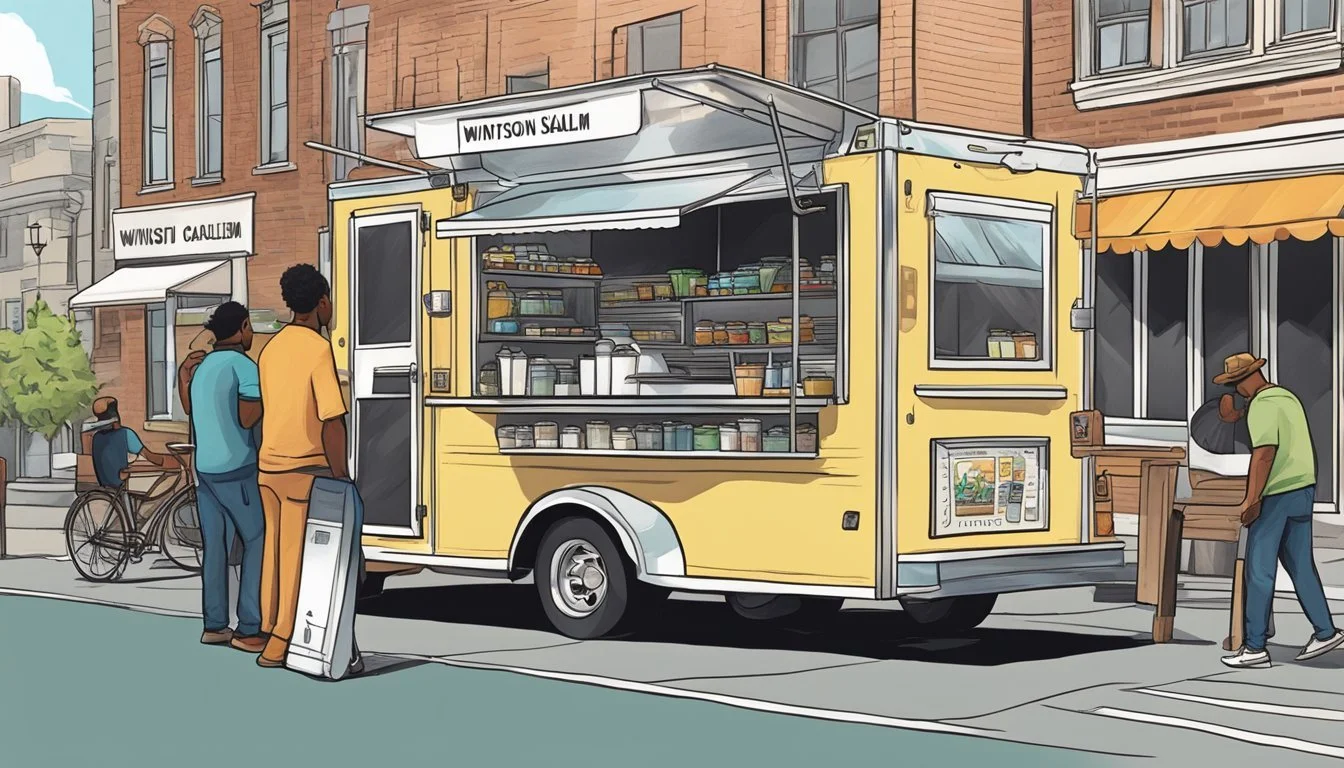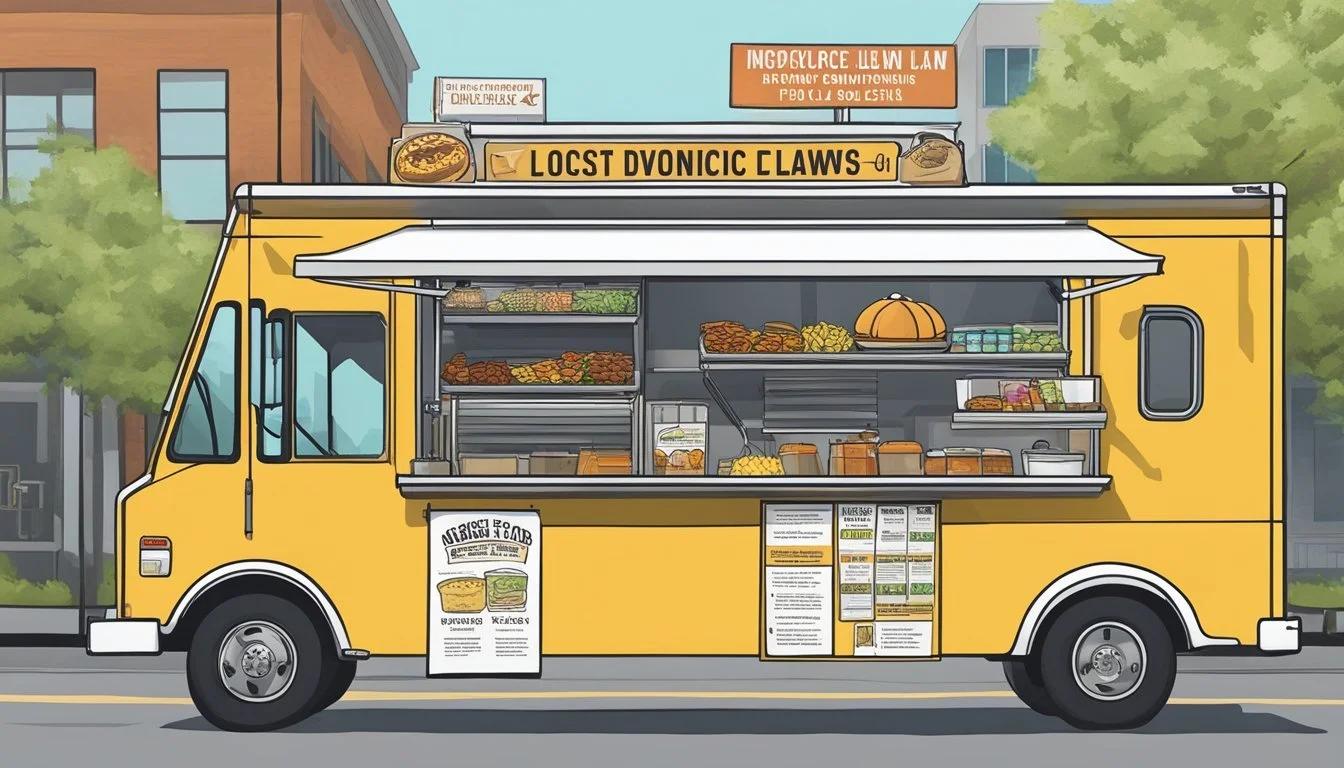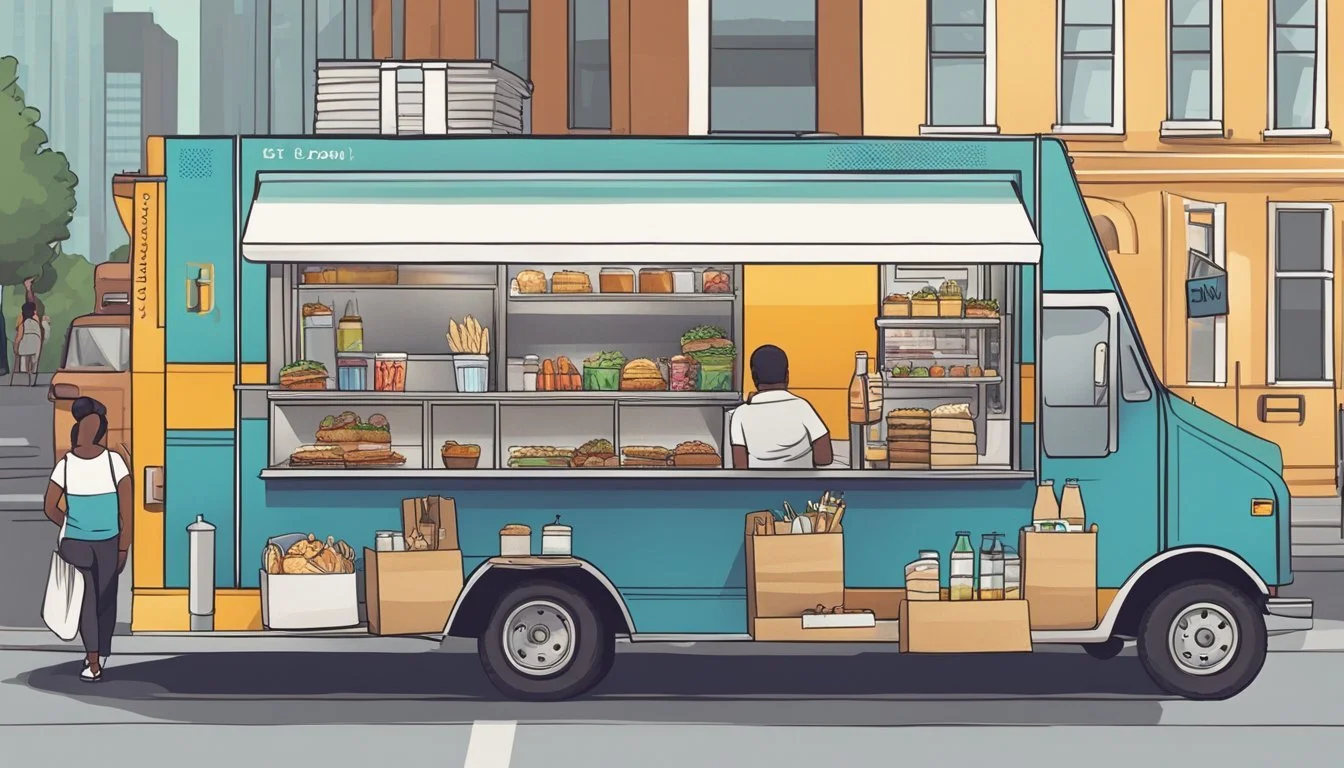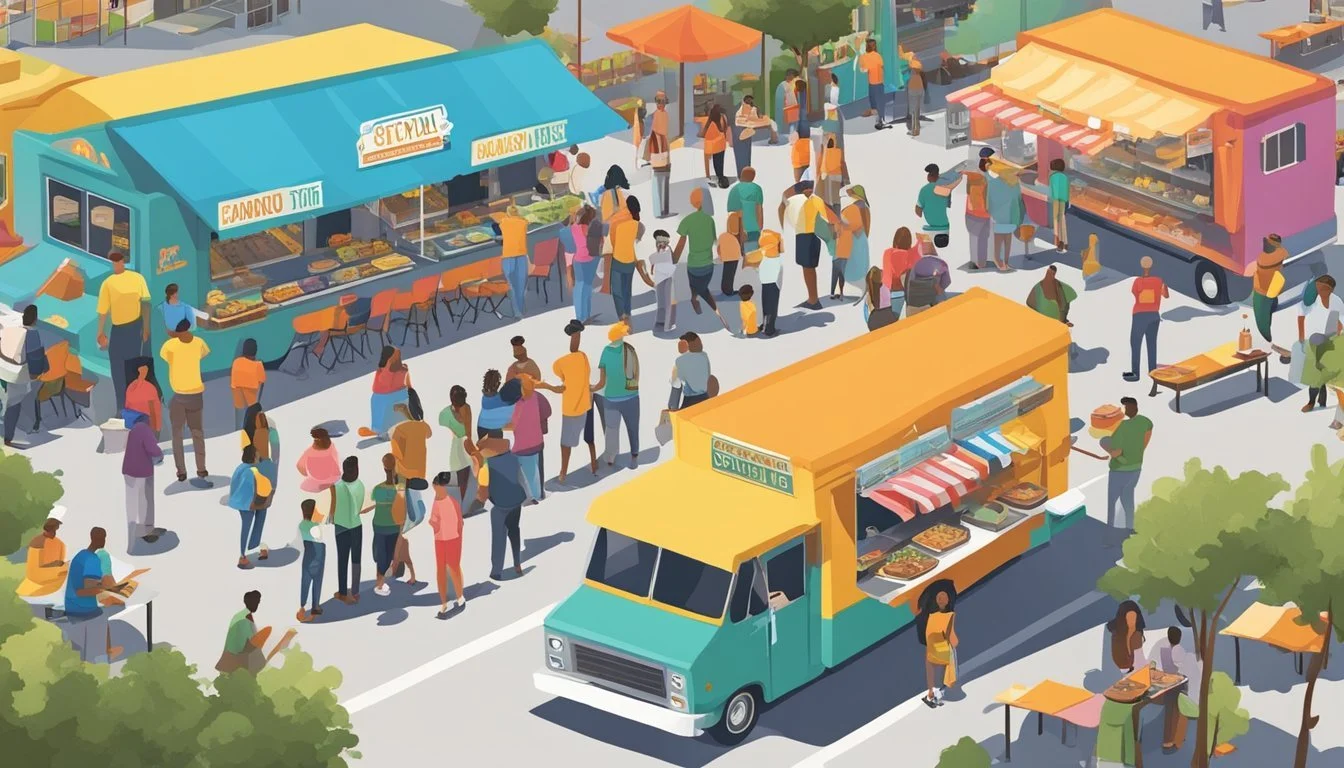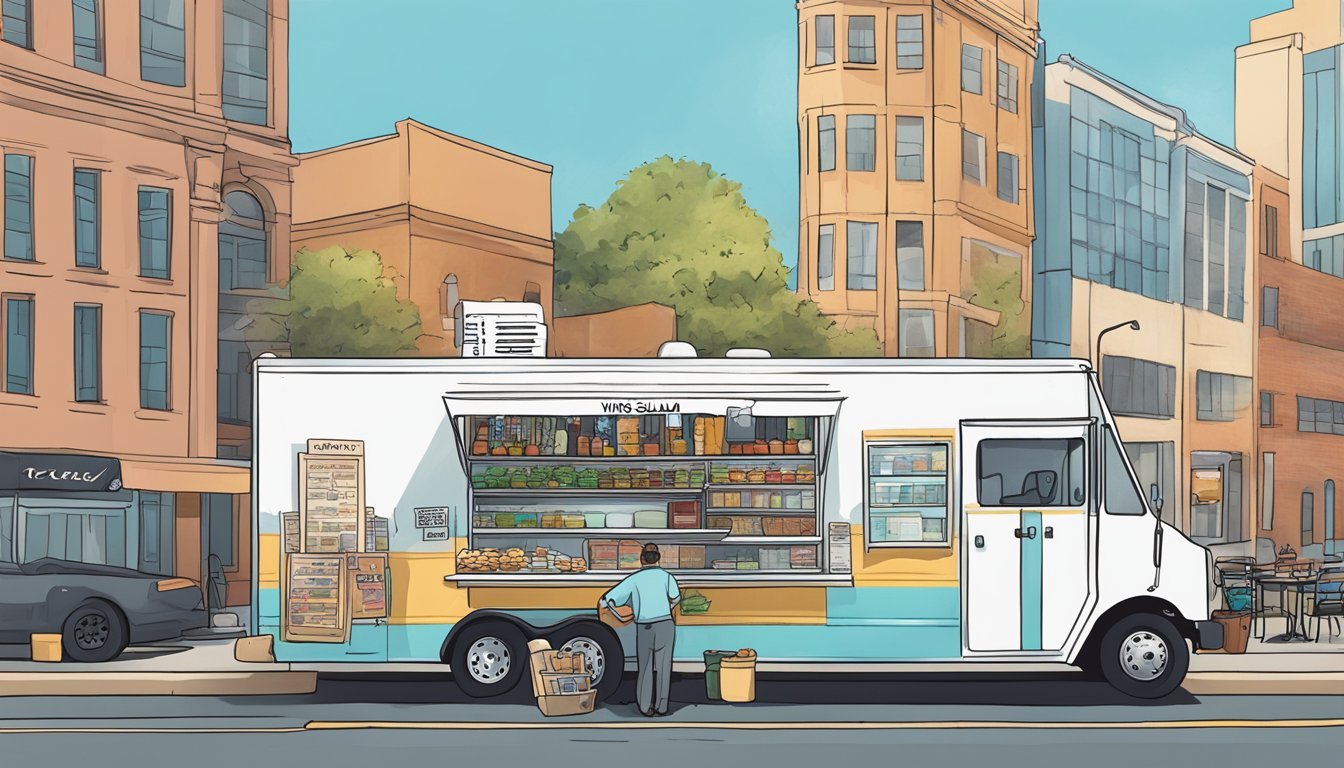Food Truck Laws Winston-Salem, North Carolina
Your Essential Legal Guide
Operating a food truck in Winston-Salem, North Carolina, requires navigating a specific set of laws and regulations to ensure public safety and business compliance. Just like their restaurant counterparts, food trucks in the city are subject to health inspections, licensing requirements, and operational guidelines. These are designed not only to protect consumers but also to maintain fair business practices and urban aesthetics.
Mobile food vendors in Winston-Salem must obtain the necessary special permits from local authorities before they can legally serve food to the public. This includes ensuring that the vehicle meets the standards for health and sanitation, adhering to the city's zoning laws, and understanding the limitations on where and when they can operate. Compliance with these laws is crucial for any food truck owner seeking long-term success in the city’s vibrant street food scene.
In addition to meeting the city's requirements, food truck operators must also be aware of the state-level regulations governing mobile food units. The North Carolina Food Truck Law provides a framework that includes guidelines on licensing, health requirements, and fees, further ensuring that the food served to Winston-Salem residents and visitors is safe and of high quality.
Getting Started with Food Trucks in Winston-Salem
Starting a food truck in Winston-Salem requires comprehensive knowledge of the legal landscape, adherence to business registration processes, and strategic location planning. This section provides essential details for aspiring food truck entrepreneurs in Winston-Salem to launch their mobile food ventures successfully.
Understanding Food Truck Laws
Winston-Salem has specific laws governing the operation of food trucks, which are considered mobile food units. Vendors must adhere to city and county regulations, including traffic control and parking, to ensure public safety and compliance with local standards. In North Carolina, food trucks must also align with state health regulations, akin to those for a traditional restaurant. For detailed requirements on permits and operational guidance, individuals should refer to the Special Permits | City of Winston-Salem, NC. It's critical to understand that applications for specialized event permits must be submitted 45 days prior to the event, per city ordinance.
Business Registration and Legal Structure
Creating a food truck business involves registering the business entity with the North Carolina Secretary of State. Food truck entrepreneurs will decide on a legal structure, whether it's a sole proprietorship, partnership, LLC, or corporation. This decision influences taxation, liability, and operation. Prospective businesses must also obtain the necessary permits and licenses. The requirements include an Employee Health Permit and possibly a Liquor License, depending on the offerings of the food truck. To be compliant, visit the guidelines discussed in Food Truck Licenses and Permits Required in North Carolina (2024).
Choosing the Right Location
Choosing an ideal location for a food truck in Winston-Salem involves understanding zoning laws and selecting spots with high foot traffic within the central business district or other popular areas. It is not enough to simply park anywhere; North Carolina food truck business owners must consider proximity to their target demographic and abide by designated areas for mobile food units. Vendors can leverage festivals, like the WINSTON-SALEM FOOD TRUCK FESTIVAL, to increase visibility. Regular spots like West Salem Public House, and special events, can serve as lucrative locations for these mobile eateries if the site aligns with local city zoning and ordinances.
Obtaining Necessary Permits and Licenses
In Winston-Salem, North Carolina, food truck operators must navigate a series of regulatory requirements to ensure their mobile food businesses are fully compliant with local laws. Obtaining the correct permits and licenses is crucial for legal operation, food safety, and overall success.
Securing a Business License
Before operating a food truck in Winston-Salem, one must obtain a business license from local authorities. This process typically involves contacting the City of Winston-Salem to apply for the license and potentially paying a fee. This license confirms the legality of the food truck as a local commercial entity.
Food Truck Specific Permits
Aside from a business license, food trucks require several specific permits. The mobile food unit permit is one such example, which is mandated by the city to govern the operations of mobile food units. Operators must follow regulations provided by the City of Winston-Salem's Specialized Permit Application, ensuring they comply with all necessary ordinances concerning food truck operations.
Health Department Inspections
Regular health department inspections are an integral part of maintaining food safety standards. Each food truck in North Carolina must undergo at least annual inspections by a licensed inspector, checking for compliance with critical systems such as brakes, fuel, steering, suspension, and the electrical system. Additionally, the local health department reviews food handling practices, ensuring they meet the food safety requirements set forth by state and local regulations. Passing these inspections is pivotal not just for the safety of consumers but also to maintain the necessary health certification that allows continued operation.
Ensuring Compliance with Safety Regulations
Operating a food truck in Winston-Salem, North Carolina requires meticulous attention to various safety regulations to protect public health and ensure a safe environment for both employees and customers. Compliance with these regulations is monitored through periodic inspections and adherence to specific safety standards.
Food Safety and Handling Requirements
Food trucks in Winston-Salem must adhere to the food safety and handling requirements established by the local health department. This includes securing a Food Service Establishment Permit and ensuring all food handlers have proper training, such as obtaining ServSafe or food protection manager certification. Employees must be knowledgeable about temperature control to prevent foodborne illnesses, and allergen information must be available to inform customers.
Permits Required: Food Service Establishment Permit
Certifications: ServSafe or equivalent
Key Regulations: Temperature control, allergen information
Vehicle and Equipment Safety Standards
Safety regulations extend to the vehicle and equipment used by food trucks. Each vehicle must pass an inspection at least once a year by a licensed inspector, focusing on critical areas such as brakes, steering, suspension, and the exhaust system. Additionally, equipment used for cooking and storing food must meet certain standards for safe operation and maintain proper temperatures.
Inspection: Annual, conducted by a licensed inspector
Safety Focus: Brakes, steering, suspension, exhaust system
Equipment Standards: Temperature maintenance, operational safety
Sanitation and Waste Management
Maintaining high standards of sanitation is crucial for food truck operations. Proper waste management protocols must be in place, including the correct disposal of greywater and regular cleaning schedules. Food trucks must be equipped with a fire extinguisher, and if using a hydrant, they must comply with local sanitation requirements. Sanitation fees might be applicable depending on the waste management services used.
Sanitation: Regular cleaning schedules, proper waste disposal
Equipment: On-board fire extinguisher required
Fees: Possible sanitation fees for waste management services
Compliance with these safety regulations is not only a legal requirement but also a commitment to the well-being of the community. Food trucks found not in compliance may face penalties, including fines or permit suspension, underscoring the importance of abiding by all safety standards.
Operating the Food Truck
To successfully operate a food truck in Winston-Salem, one needs a clear understanding of the daily operational requirements, the process for participating in local events and festivals, and adeptness at managing sales tax and financial aspects related to the mobile food business.
Day-to-Day Operations
In Winston-Salem, food trucks must adhere to a regimen of regular vehicle inspections and obtain the proper permits for operation. This includes maintaining their business license and ensuring they have valid Employee Health Permits and a Mobile Food Facility Permit. Strict compliance with public health requirements is crucial to ensure the safe handling and serving of prepared foods, as well as upholding a high standard of food quality and hygiene for consumers.
Participation in Events and Festivals
Food trucks must obtain special permits for each event or festival they plan to attend in Winston-Salem. Navigating the permitting process is essential for food truck operators, especially during peak festival seasons when they might prepare for high foot traffic and increased demand. Coordinating with event organizers and understanding the specific regulations for food vendors at each event helps ensure compliance and prevent last-minute complications.
Managing Sales Tax and Finances
Handling finances and tracking sales tax are critical components of running a food truck business in Winston-Salem. Operators are required to collect and remit sales tax on all sales of prepared food items. Maintaining accurate financial records not only assists in precise tax reporting but also helps in assessing the overall business performance. Regular financial review helps to ensure that the food truck can sustainably manage its liability and continue serving the community.
To stay fully compliant and maintain a successful food truck operation in Winston-Salem, attention to detail and proactive management are key.
Promoting and Growing Your Food Truck Business
To successfully develop a food truck venture in Winston-Salem, entrepreneurs must master marketing and branding, scale operations effectively, and ensure their menu remains appealing and diverse.
Marketing and Social Media Strategies
Food trucks thrive on visibility and customer engagement, making a robust marketing strategy essential. They can capitalize on the vibrant culture of Winston-Salem by showcasing their unique food offerings through vibrant social media campaigns. Platforms like Instagram and Facebook are key for food trucks to share their location, menu specials, and behind-the-scenes glimpses into their operations. Additionally, engaging with customers online through regular updates and responsive communication builds a loyal following.
Scaling Your Operations
As the business grows, scaling up becomes necessary for food service entrepreneurs. This might involve investing in additional trucks for larger geographic coverage or enhancing kitchen efficiency with better equipment. To manage this growth, proprietors should analyze their sales data and customer feedback to make informed decisions on expansion, always keeping their brand's reputation at the forefront.
Diversifying the Menu
A diverse menu appeals to a wider range of tastes and dietary preferences, which is critical in the eclectic food scene of Winston-Salem. Food trucks should consider seasonal offerings and signature dishes that differentiate them from competitors. They should additionally balance consistency in their most popular items with the innovation of new, experimental dishes to keep the menu fresh and exciting for repeat customers.
Additional Considerations
When operating a food truck in Winston-Salem, North Carolina, proprietors must address additional regulatory considerations to ensure compliance and protect their business. These considerations include insurance requirements, adherence to local ordinances, and the diligent management of necessary licenses and records.
Insurance and Liability
Food truck operators must secure adequate insurance to cover potential liabilities. This typically includes general liability insurance for protection against accidents and injuries, comprehensive vehicle insurance for the food truck itself, and, if applicable, workers' compensation for employees. Maintaining insurance not only protects the business from financial risk but also is often a requirement for obtaining permits.
Local Ordinances and Zoning Restrictions
Adherence to local ordinances is crucial for food truck operators. Winston-Salem’s specific zoning restrictions dictate where mobile vendors can operate, often designating certain areas where food truck activity is permitted. Operators should consult the City of Winston-Salem's Special Permits for details on allowed locations, noise regulations, waste disposal requirements, and hours of operation.
Renewing Licenses and Keeping Records
To remain operational, one must renew licenses annually, including the business license and vehicle registration. Maintaining an accurate record of all transactions and regulatory documents is imperative for legal compliance and financial organization. The Employer Identification Number (EIN) should be kept on file as it is often required for tax purposes and when applying for permits. Records pertaining to food safety, such as hygiene and facility maintenance, must be up to date and in compliance with North Carolina food truck requirements.

